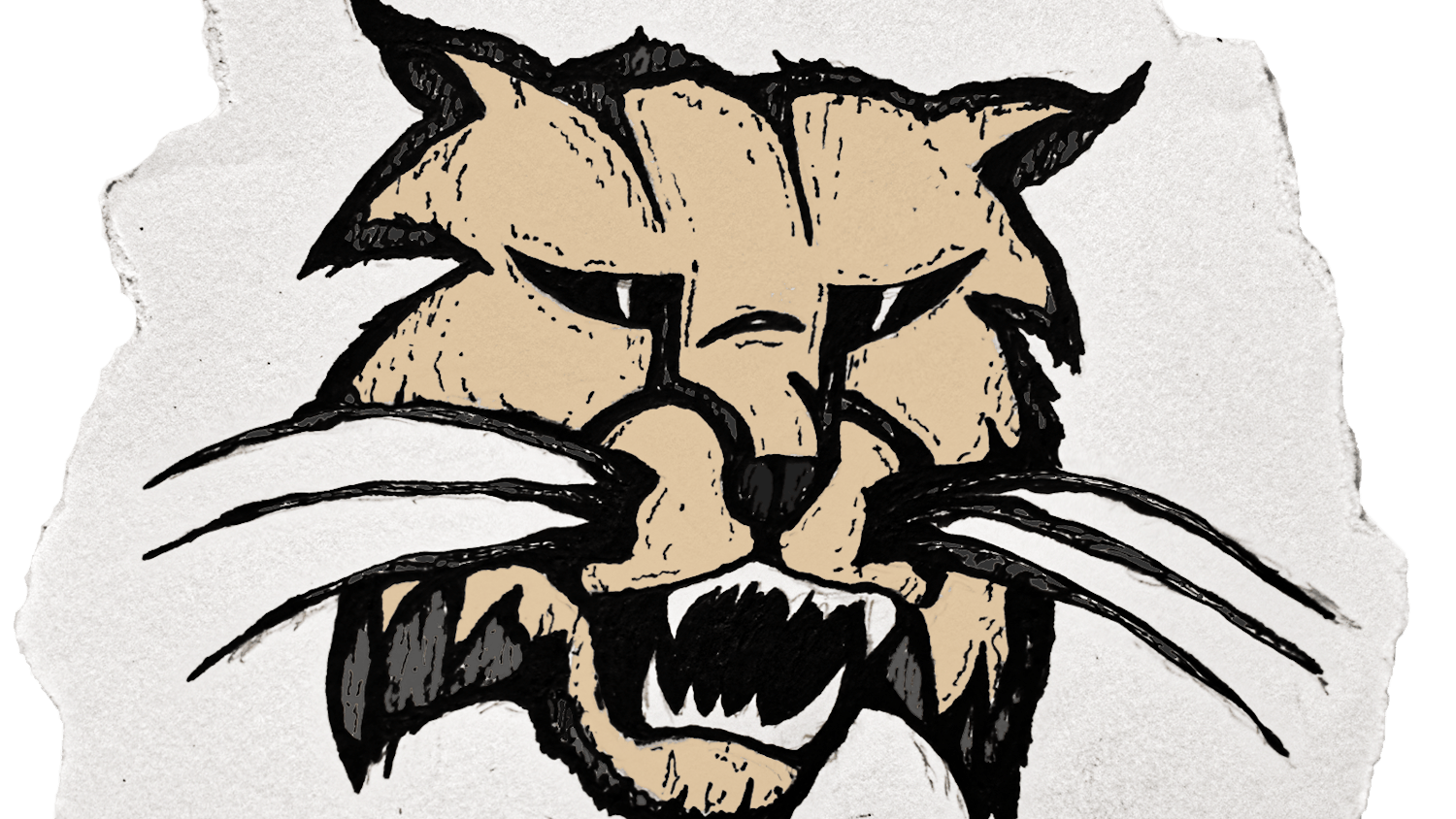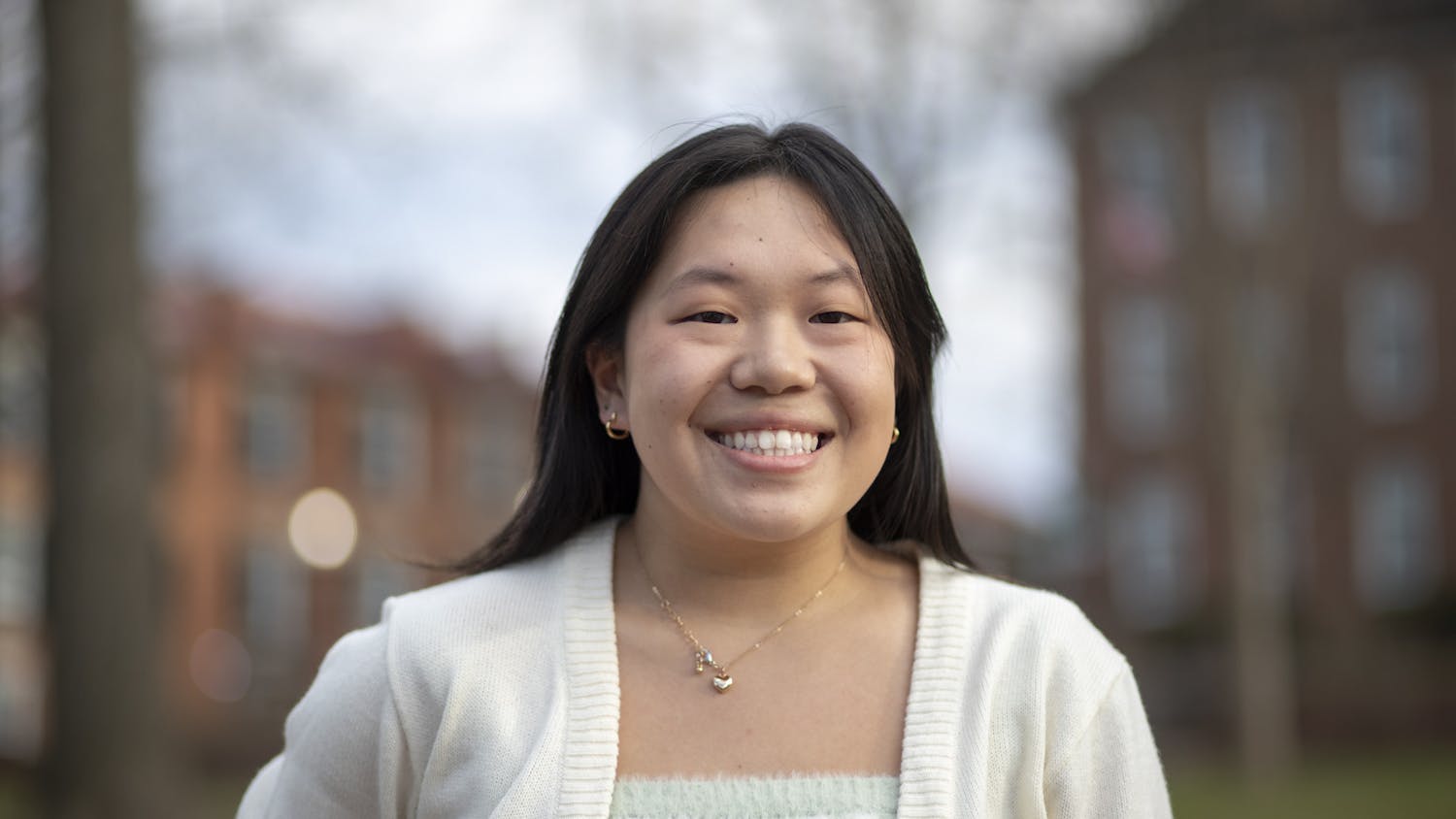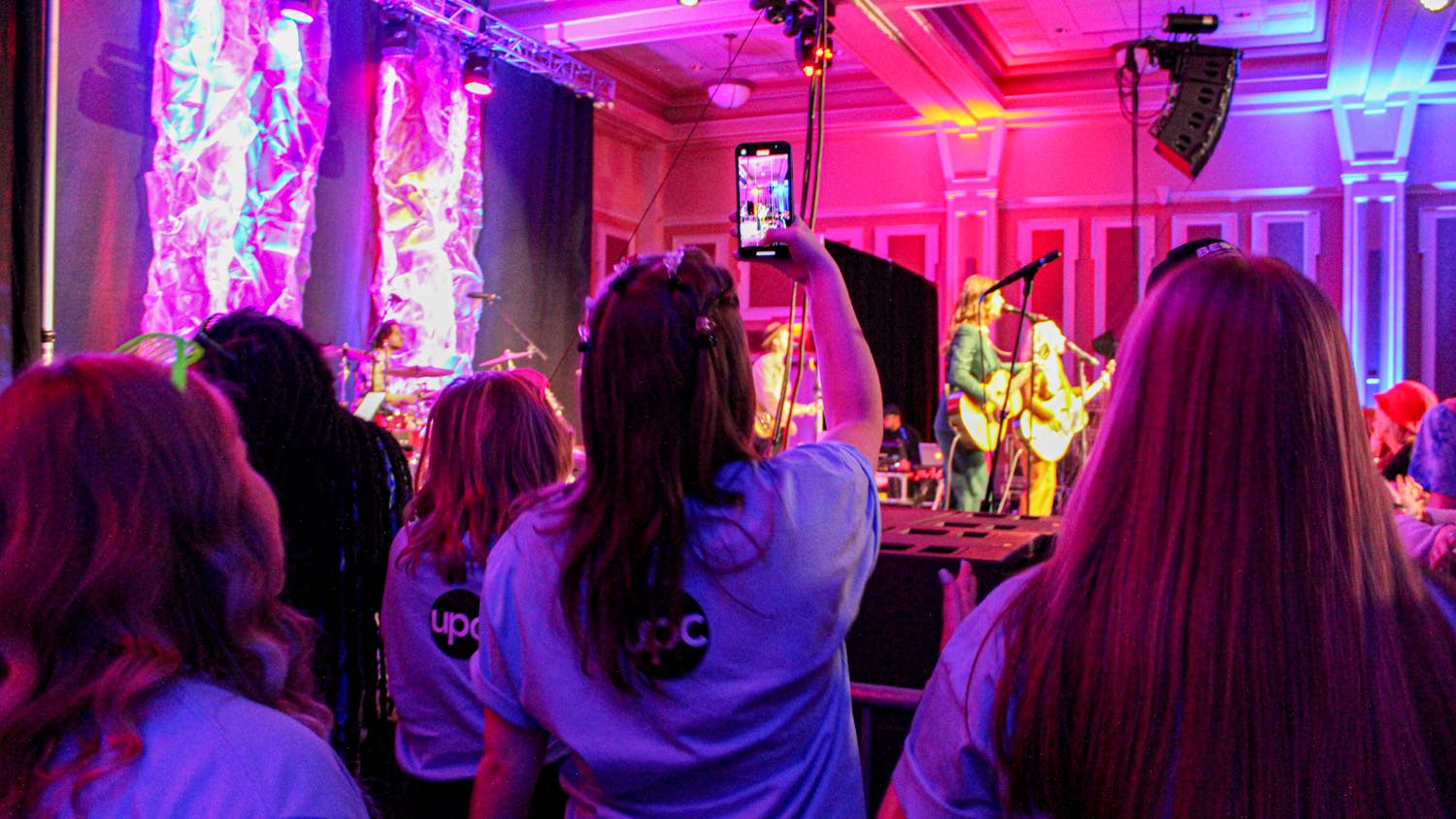On Friday, Ohio University’s Black Student Communication Caucus hosted its annual Slam Poetry contest, providing book nerds and magical realists an excuse to ditch Court Street and experience something thoroughly genuine.
Founded in 2017, the Black Student Communication Caucus, or BSCC, has served student minorities and provided them a place to acknowledge their capabilities in a world that is still predominantly saturated with white positions of power and success.
President Joi Foy, a sophomore studying journalism and president of BSCC, said the goal of BSCC is to ensure "Black students and multicultural students are getting the same professional development that our counterparts are getting as well.”
In attempting to support minority students' manifestations, BSCC recognizes the significance of immersing its members in a network of influential Black men and women students can identify themselves with.
"I think there's an importance of seeing people in the role that you also want to have,” Foy said. “If you see people doing what you want to do it makes you know that you can also do it.”
In addition to its numerous works, the BSCC organizes the Slam Poetry event to highlight marginalized voices and experiences led by an accomplished Black artist each fall semester. This year, Ajanaé Dawkins, a 27-year-old poet, lit fire to the stage with her words of frustration, betrayal and celebration as she took on the multifaceted challenge to convey the evils that haunt her and other Black women.
Dawkins, a graduate of the University of Wisconsin-Madison, is published in a wide array of culture magazines such as "The Rumpus," "EcoTheo Review" and "BreakBeat Poets Black Girl Magic Anthology.” While varied, Dawkins’ work is uniform in its authenticity and ability to convey overlooked stories.
The writer can't recall a time when she was not crafting poetry, even if it seemed to have been a series of futile run-on sentences stringed together on Tumblr. However, the turning point for her poignant words came when, at 12 years old, she quit the basketball team and joined the poetry club.
"It was kind of like the beginning of the end," Dawkins said.
Since then, Dawkins has constructed a collective where she travels, performs and speaks with other accomplished poets. The majority of Dawkins’ work represents issues that she hopes to provide justice to. Whether it be domestic abuse, sexual violence or spirituality, Dawkins primarily aims to speak to Black women who for so long have had their stories taken from them.
While the organization is proactively inclusive of Black students, it does not exclude those with differing identities and pure intentions who are looking to support Black art and innovation.
"I think it is incredibly important for Black students to not just have their own events, but Black spaces," Dawkins said. “(However,) I would have loved to see more non-Black students in the audience coming out to show support."
Partaking in an event that not only highlights but also celebrates minority students' talents is integral in ensuring that all students are heard and appreciated on campus. However, the benefits of choosing to well-round oneself with realities different than their own stretch far beyond the principles of inclusivity.
What is coming out of these originally omitted spaces is typically urgent, Dawkins said. Whether it's personal stories or work that addresses social issues, it is work that is responding to the times that many may miss if they choose to stay sheltered in their comfort.
Brittany Kincaid, a second-year graduate student studying student personnel, agrees with this sentiment. Throughout her undergraduate years, Kincaid served as an active member of the BSCC but has since become too busy to continue her previous involvement level, causing her instead to be an occasional participant in the organization's creative and networking events.
"I think a lot of times people will see things and they’re like, ‘Oh, I’m not going to go because it's just the Black students,’" Kincaid said. "Come and sit in the audience and be another body, just listen to the experiences and help show people that they’re seen on this campus."
Possibly inspired by Dawkins and her fellow peer's candidness, Kincaid said she accepted the daunting open mic despite her shyness.
"It's definitely a safe space … If I were to go to Donkey Coffee open mic night or Front Room open mic I don't know if I would feel as comfortable being so vulnerable," Kincaid said.
While she may not be prone to performance, Kincaid knows that poetry can be pensive and unforgiving. However, she is also aware that it can resemble hope.
Feeling as if she is constantly having to fight for her aspirations in this life, Kincaid said she utilizes poetry such as Sojourner Truth's "Ain't I A Woman," to remind her that although Black women have historically not had doors opened for them or been helped over puddles, as written in the poem, Kincaid does not have to carry the weight of the world on her back to succeed.
"I think of it sometimes to keep me soft because the whole strong Black woman thing is super exhausting," Kincaid said. “Sometimes it's comforting to just be like, 'I am a woman, I can be soft, I can take advantage of these systems just like other women can.'”
At the end of the day, the BSCC, its members and even guest speakers encourage students—no matter their identity—to continue creating their art no matter how insignificant they might believe it to be and to never limit their impact. For students wishing to get involved with BSCC, it will host a poetry after dark meeting Thursday at 6 p.m. in room 27 of the Radio Television Building, which Foy said was open to anyone.
“These events are so important to the community, not just to us,” Foy said. “To showcase to people outside of our cultures what these events mean to us and also ways they can be a part of things like that.”






